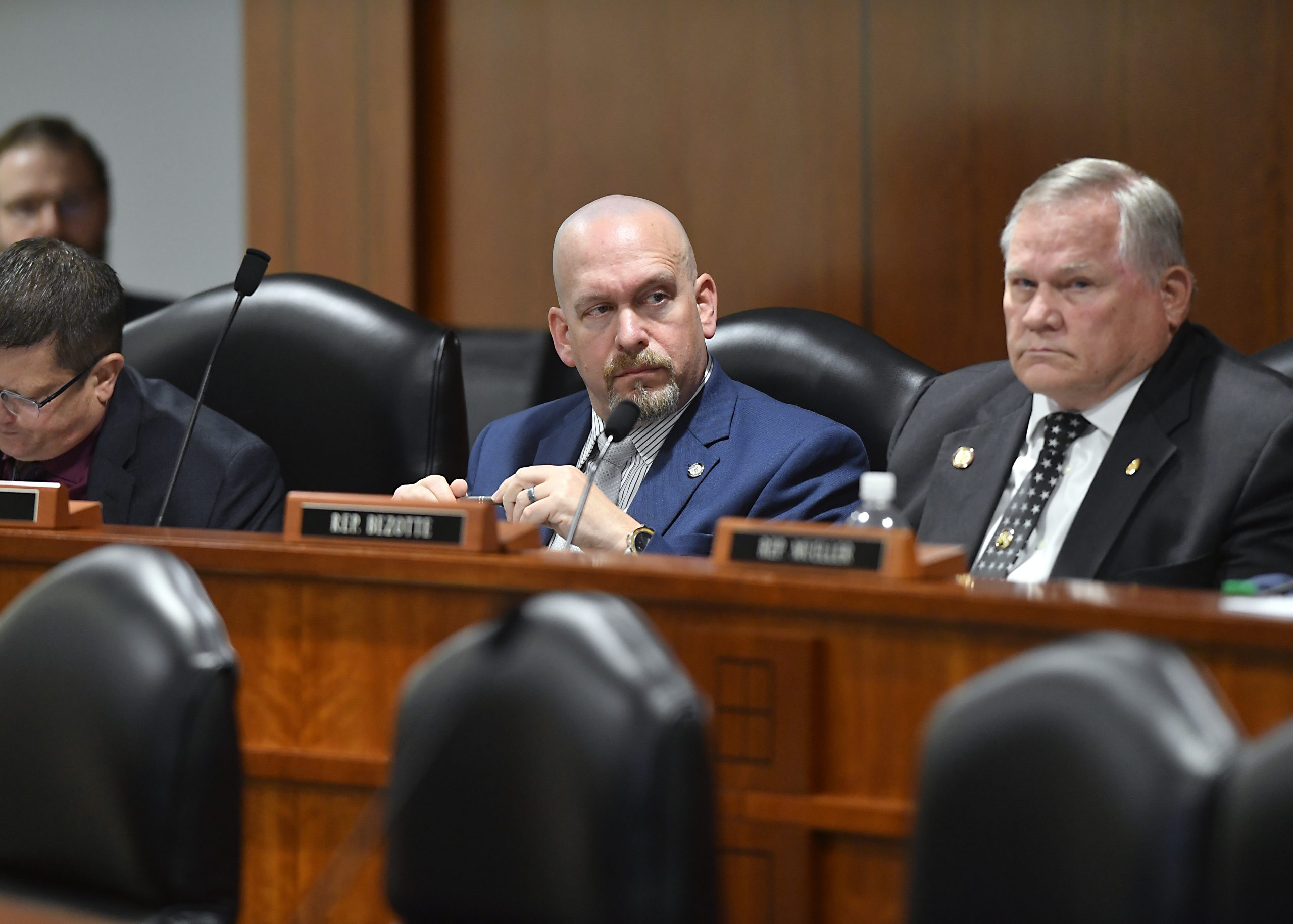


Rep. Mike Harris, R-Waterford, looks on during a House Criminal Justice Committee hearing on House Bills 4160-4164, which would make violent criminals, including the Oxford shooter, eligible for parole after 10 years in prison. Harris and other Republicans on the committee firmly oppose the bills.
State Rep. Mike Harris, R-Waterford, on Tuesday stood up for public safety and crime victims to oppose a proposal in the Legislature that would make Oxford shooter Ethan Crumbley and other violent criminals eligible for parole after only 10 years in prison.
Harris, a retired police officer, pointed out that House Bills 4160-64 would invalidate sentences of life without parole for murderers who were younger than 19 when they committed their crimes and make many of them immediately eligible for parole. Prosecutors are urging a life without parole sentence for Crumbley, who was 15 years old when he killed four of his fellow students at Oxford High School in 2021, but he could nonetheless become eligible for parole as young as 25 years old under the proposed legislation.
“Freeing the most heinous murderers from prison is the complete opposite of criminal justice,” said Harris, who serves on the House Criminal Justice Committee where the bills were brought up for discussion today. “This misguided legislation would undermine public safety by letting monsters who committed brutal and horrifying murders back in our communities after a mere 10 years. Slashing sentences for these dangerous criminals unjustly puts survivors, victims’ families, and our entire state at risk.”
HBs 4160-64 would allow an individual sentenced to life in prison without eligibility for parole to be released on parole after serving 10 years if the criminal was younger than 19 at the time of the crime.
When an individual becomes eligible for parole under these bills, the parole board would be required to consider the individual’s age and immaturity at the time of the offense; the individual’s family and home environment at the time of the offense; and the circumstances surrounding the offense, including the influence of peer pressure.
Harris explained that the legislation will retraumatize victims and their families when they present testimony to the parole board every few years when a criminal applies for parole.
“Survivors and victim families share their horrific personal stories and grief each time a violent criminal seeks parole,” Harris said. “By making murderers eligible for parole after 10 years, this legislation would force families to relive their trauma over and over again.”
Several other dangerous criminals would be eligible for parole immediately if this proposal became law.
Harris noted that this law goes far beyond the prohibition of mandatory sentencing of juveniles to life without parole, as decided by the U.S. Supreme Court in Miller v. Alabama. Michigan already complies with the Miller ruling, as well as federal and state court decisions that require resentencing of past juvenile offenders who were automatically sentenced to life without parole.
Harris and other Republican members of the House Criminal Justice Committee have all vowed to vote against House Bills 4160-64 if they are brought up for a vote, and they called on the Democrat majority to do the same.

© 2009 - 2026 Michigan House Republicans. All Rights Reserved.
This site is protected by reCAPTCHA and the Google Privacy Policy and Terms of Service apply.